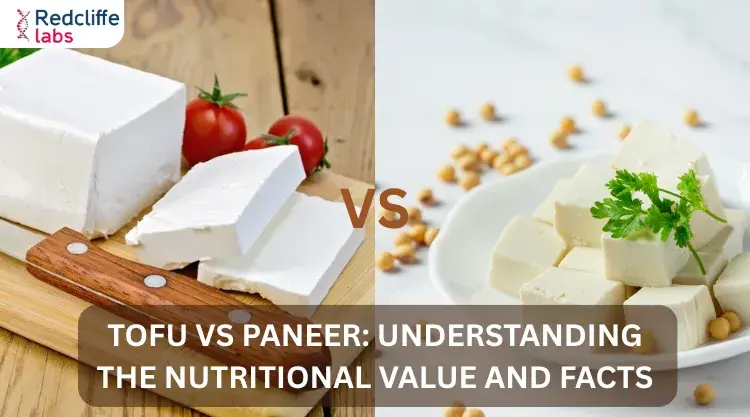Fruits for Diabetes Patients in India: 10 best low sugar fruits

Medically Reviewed By
Dr Divya Rohra
Written By Prekshi Garg
on Mar 21, 2022
Last Edit Made By Prekshi Garg
on Feb 26, 2025

Monitoring your sugar levels and limiting the intake of sugar is an essential parameter of management of diabetes. Most often, following this protocol is difficult as it dissatisfies your sweet tooth. What if you can limit your sugar intake and still satisfy your sweet tooth. Amazed..!! Here we have got you 10 fruits that are low in sugar content and therefore keep blood glucose levels in control.

10 Best fruits for Diabetic Patients
Papaya

Papaya is a summer fruit that can provide a lot of benefits to your health. It is low in sugar content and yet tastes sweet. Any part of this fruit can be eaten whether it's the seeds or the pulp. Papayas are rich in antioxidants and fibre, thereby preventing cell damage. It is a low-calorie fruit and therefore also aids in weight loss. These are rich in folate, vitamin B, magnesium, potassium, and fiber making them a perfect fruit for diabetics.
Plum

Plums are one of the most diabetic-friendly fruits. It is low in glycemic index and takes a longer time to break down the sugars in the body, thereby, reducing the risk of an increase in the blood sugar level. The fruit is packed with nutrients and decreases insulin resistance in the body. Plums also contain a lot of fibre which also help in controlling sugar levels.
Berries

Berries like raspberries, strawberries, blackberries, or blueberries are excellent for people with diabetes. According to the US Department of Agriculture, raspberries contain approximately 5 grams of sugar per cup, sugar content in strawberries and blackberries is 7 gram per cup. These berries are rich in antioxidants, nutrients, and phytonutrients that help in the low absorption of glucose. Berries also contain anti-inflammatory properties, vitamin C, and fibre.
Kiwi

According to the US Department of Agriculture, this green fleshy fruit contains approximately 6 grams of sugar per kiwi. Kiwis are rich in vitamin C and low in sugar. These have a glycemic index of only 49, which means it takes a longer time for it to convert to glucose in your body. Having kiwis in the morning can reduce the sugar uptake in the blood. This is because of the high fiber content in kiwis that has a higher water holding capacity. Therefore, on consumption, the fruit absorbs water and thickens into a gel, thereby slowing down the process of sugar conversion.
Cherries

According to the USDA, one cup of cherries contains approximately 52 calories or 12.5 grams of carbohydrates. Cherries are very efficient in fighting inflammation. According to research, cherries are packed with antioxidants and can help in the treatment of cancer, heart disease, and other diseases as well. You can have cherries in any form, that is, canned, fresh, frozen or dried but be sure to check the label for added sugar.
Peaches

Peaches are an excellent source of nutrition that contain approximately 59 calories, 14 gm carbohydrates, 10 mg vitamin C, and 285 mg potassium as per USDA. Peaches can be consumed in many forms like raw fruit, smoothies, or flavored iced tea as well. Although peaches contain carbohydrates, the other nutrition contained in the fruit compensates for the carbohydrate content. Peaches also contain bioactive compounds that help fight obesity and cardiovascular problems which may arise due to diabetes. Peaches are also rich in other nutrients like fibre, potassium, vitamin A and C.
Apples

As we all know, apples are one of the most healthy fruits. Apples should be included in everyone’s diet as they help fight many diseases and symptoms. Apples contain soluble fibers, vitamin C, and various other nutrients as well. Although apples also contain carbohydrates, the fiber content and antioxidant properties help in stabilizing the blood sugar levels.
Oranges

The vitamin C-rich fruit, that is, orange is another great fruit that will satisfy your sweet tooth without adding any extra calories and sugar to your diet. Oranges contain approximately 12 grams of sugar per fruit and less than 70 calories. Since carbohydrates are also rich in fiber content, they take time to break down into sugar. It is always recommended to consume oranges in the raw form and not as a juice.
Pears
Adding pears to your diet can be a wise choice due to its high fiber content, that is, approximately 5.5 gm fiber. Pears are a pack of nutrients including calcium, iron, minerals, magnesium, potassium, vitamin C, lutein, folate, beta-carotene, choline, and retinol. The skin of pears is high in fiber content that reduces the risk of cholesterol and obesity issues.
Apricots

Apricots can act as an alternative to your sweet cravings. It is a sweet summer fruit that contains approximately 17 calories, 3 grams of fiber, and 4 gm carbohydrates as per the USDA. Avocados also contain healthy fats that satisfy your craving and also benefit your health. Apricots have a glycemic index of 32 and a glycemic load of 9 which means that apricots will take a longer time to convert to sugar. Apricots also provide you with one-fourth of your daily copper requirement and are also high in vitamin A and E.
Takeaway
Glycemic index, sugar, and carbohydrate content are important parameters that should be evaluated when you add anything to your diet. Therefore, diabetic people should check the glycemic index of fruits before they add them to their diet. Now that you know the fruits which are low in sugar and can help diabetic patients in many ways, try including them in your diet in one way or the other.
Frequently Asked Questions (FAQs)
1. Which fruits can control diabetes?
Many fruits in their raw form, like berries, apricots, apples, and citrus fruits can be a good addition to your diet as they can control your A1C sugar levels, normalize blood pressure, fight inflammation, and maintain your overall health.
2. Which fruit has maximum sugar content?
Figs are the fruits that contain maximum sugar, that is, approximately 8 grams of sugar in a medium-sized fig.
3. Are pomegranates good for diabetic patients?
Although pomegranates contain approximately 14 gm of sugar per 100 gm of fruit, they still contain antioxidant properties in a large amount that can improve insulin sensitivity, thereby helping diabetic patients.
Leave a comment
1 Comments
Ananya
Oct 12, 2022 at 7:43 AM.
I am pre diabetic and is 26 years old. My mother has also diabetes. Can I eat banana?
Admin
Oct 17, 2022 at 9:59 AM.
Fruits like bananas are healthy foods that contain fiber, vitamins, and minerals. You can include bananas in your diet even if you have diabetes. Other great fruits to eat as a prediabetic are Strawberries, Grapes, Apple, and Peaches.




